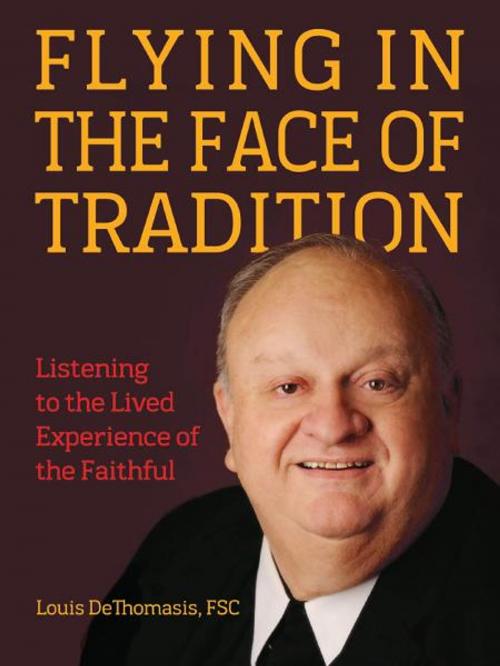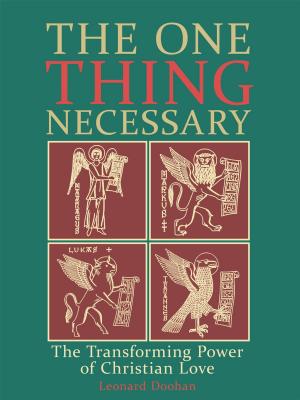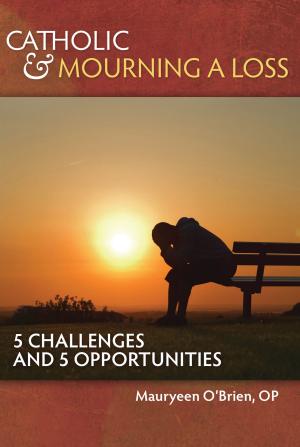Flying in the Face of Tradition
Listening to the Lived Experience of the Faithful
Nonfiction, Religion & Spirituality, Christianity, Church, Christian Life| Author: | Louis DeThomasis, FSC | ISBN: | 9780879460082 |
| Publisher: | ACTA Publications | Publication: | June 1, 2012 |
| Imprint: | ACTA Publications | Language: | English |
| Author: | Louis DeThomasis, FSC |
| ISBN: | 9780879460082 |
| Publisher: | ACTA Publications |
| Publication: | June 1, 2012 |
| Imprint: | ACTA Publications |
| Language: | English |
The current quandary that the Roman Catholic Church finds itself in right now is what Brother Louis DeThomasis calls "a crisis of confidence" in this insightful, provocative, and hopeful new book. He points to the way of unraveling the quandary by returning the church's historic belief in tradition- "the lived experience of the faithful" - as a source of ongoing revelation and renewal. This is not an attack by someone intent on bringing down the church but rather a wake-up call for the church itself to recognize and embrace globalization, diversity, and democratization and begin to rebuild what DeThomasis calls "koinonia" or "communio". He uses the issue of the ordination of women as a case study of how the institutional church has fallen out of step with its own members but could work its way back to relevance and effectiveness by listening to them. Brother Louis makes it clear that he is not just criticizing others: "I know that I am guilty as anyone of many of the sins decried in this book. I too have been insensitive, closed-minded, arrogant, self-centered, too-quick-to-defend-the-indefensible, and overly protective of myself and my fellow church-members. For this I am sorry. And for this reason I offer my book as a small token of atonement." But he does insist that the institutional church has to change quickly and fundamentally if it is to recover its creditability and authority. People like him who have dedicated their entire lives to the church have to speak up, he says: "I am a 70-year-old De LaSalle Brother, entering my well-developed understandings about the church that I feel I have not only a right but a duty to present to whomever might want to listen."
The current quandary that the Roman Catholic Church finds itself in right now is what Brother Louis DeThomasis calls "a crisis of confidence" in this insightful, provocative, and hopeful new book. He points to the way of unraveling the quandary by returning the church's historic belief in tradition- "the lived experience of the faithful" - as a source of ongoing revelation and renewal. This is not an attack by someone intent on bringing down the church but rather a wake-up call for the church itself to recognize and embrace globalization, diversity, and democratization and begin to rebuild what DeThomasis calls "koinonia" or "communio". He uses the issue of the ordination of women as a case study of how the institutional church has fallen out of step with its own members but could work its way back to relevance and effectiveness by listening to them. Brother Louis makes it clear that he is not just criticizing others: "I know that I am guilty as anyone of many of the sins decried in this book. I too have been insensitive, closed-minded, arrogant, self-centered, too-quick-to-defend-the-indefensible, and overly protective of myself and my fellow church-members. For this I am sorry. And for this reason I offer my book as a small token of atonement." But he does insist that the institutional church has to change quickly and fundamentally if it is to recover its creditability and authority. People like him who have dedicated their entire lives to the church have to speak up, he says: "I am a 70-year-old De LaSalle Brother, entering my well-developed understandings about the church that I feel I have not only a right but a duty to present to whomever might want to listen."















